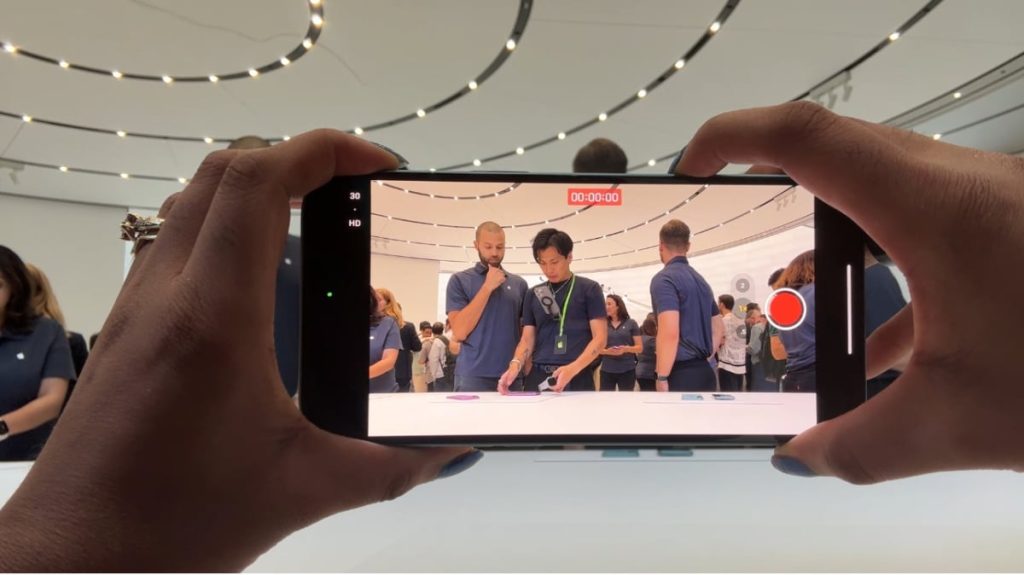At Apple’s highly anticipated “Glowtime” event on Sept. 9, all eyes were on the new iPhone 16 and iPhone 16 Pro lineup — and the show’s star wasn’t just the phone itself but a game-changing new “button” revolutionizing mobile photography: the Camera Control feature.
iPhone 16 Camera Control button unveiled at Apple Event 2024

Credit: Apple
The iPhone 16 lineup introduces a game-changing Camera Control button, positioned just below the power button on the bottom-right side. It acts like a DSLR shutter and offers haptic feedback for a more tactile shooting experience. A light press activates autofocus, while a harder press snaps a picture.
The Camera Control button provides responsive haptic feedback, simulating the feel of a camera shutter with each interaction. This tactile response makes shooting more intuitive and precise. A light press also activates a clean, streamlined overlay, giving quick access to essential camera settings without overwhelming the screen — allowing you to focus on the moment you’re capturing.
Mashable Light Speed
A quick double-button press activates additional controls for those looking to delve deeper into the camera’s advanced capabilities. From here, users can select from a range of options, such as switching between modes, like video or portrait, or toggling manual focus and exposure. It’s a gateway to the full potential of the iPhone’s camera system.
Integrated with apps like Snapchat, the Camera Control button allows instant capturing, zooming, and sharing without leaving the app. According to Apple, this seamless functionality brings social media experiences to life faster and more tactilely.

iPhone 16’s Camera Control button
Credit: Kimberly Gedeon / Mashable
Combined with the iPhone 16’s new 48MP fusion camera, Camera Control becomes a simple but powerful addition, elevating the iPhone’s already formidable camera game.
Mashable’s currently on the ground in Cupertino for the Sept. 9 “Glowtime” Apple event. Check out our live blog to keep track of all things iPhone 16 before, during, and after the event.


